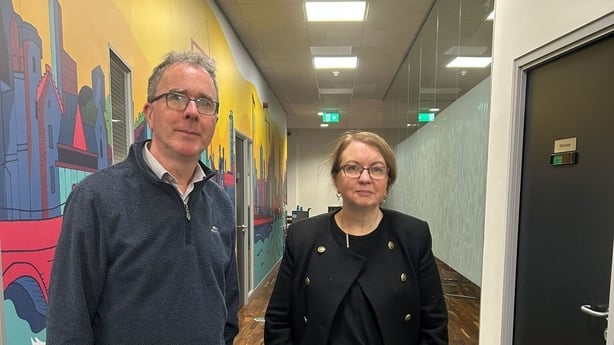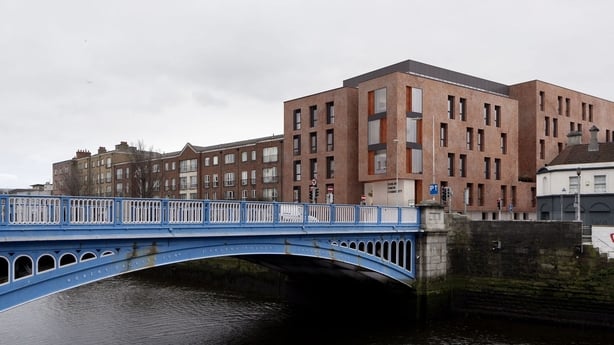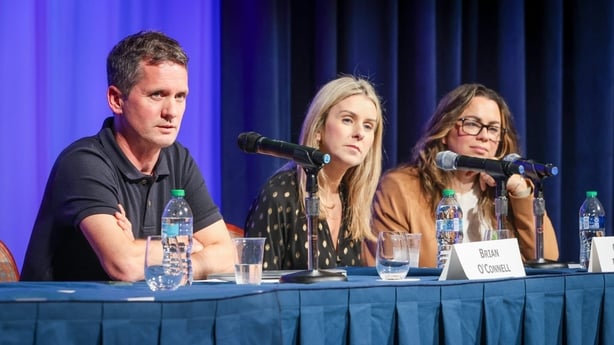There is growing concern that some national mental health policies, accepted by many as a fundamental shift in treating some of our most vulnerable communities, are not being progressed sufficiently and may not see the policy vision realised fully.
Patients with a dual diagnosis, ie an active addiction and a mental health challenge, often find they fall between the cracks of both mental health services and addiction services.
Previous national strategies separated the treatment of dual diagnosis into different services, whereas more recent policies, such as Sharing the Vision, sought to integrate services and better meet the day-to-day lives of this patient group.
The policy shift followed criticism and a realisation that services were not fully aligned with the day-to-day realities of persons living with a dual diagnosis.
We need your consent to load this rte-player contentWe use rte-player to manage extra content that can set cookies on your device and collect data about your activity. Please review their details and accept them to load the content.Manage Preferences
As a result, a new model of care was accepted and adopted by the HSE and the Department of Health in 2023 around dual diagnosis.
It recommended the setting up of 12 adult dual diagnosis teams, each led by a consultant psychiatrist.
Alongside this, four adolescent hubs and a national dual diagnosis rehabilitation centre were to be set up.
However, the Department of Health has confirmed that a fraction of the services recommended have been set up, with just two adult and two adolescent teams operational, and some of these teams are without a full staffing complement.
Funding has been committed under Budget 2025 for a further two dual diagnosis teams, which are expected to be operational this year.
However, no specific timelines are available for the setting up of the remaining services, committed to as far back as 2023.
Sinn Féin's Health Spokesperson David Cullinane has liaised directly with the HSE on this issue and is calling for clarity on implementation timelines.
Mr Cullinane said: "Twelve teams were recommended for adult services, four hubs for young adults and then an additional residential unit. Only two of the 12 dual diagnosis teams for adults are up and running, and even at that, some are not fully staffed. We don’t have all the services for adolescents.
"What’s more worrying is that the Programme for Government gives a vague commitment to increase staffing to under-18 dual diagnosis services, but there is no mention of the dual diagnosis teams, no mention of the four adolescent hubs, nor the residential unit promised."
Mr Cullinane said he was awaiting further clarification from the HSE’s CEO Bernard Gloster on specific timelines as to when the full range of recommendations would be in place.

He said: "What’s really frustrating is all parties in the Dáil signed up for Vision for Change. It does set out very ambitious proposals and plans in relation to Dual Diagnosis, but while the policy and vision is very good, the delivery across a lot of these areas has been quite poor."
In response, a spokesperson for the HSE said: "The HSE continues to strengthen existing Dual Diagnosis teams and establish new ones to support adults and adolescents in need of services, whilst acknowledging there are difficulties in sourcing staff.
"We are implementing the Model of Care which was developed in consultation with people with lived experience."
The Department of Health said the area remains a priority for the minister and the HSE, and that the "location and prioritisation of the remaining teams will be informed by several factors, including wider service developments and service demands, in line with the Model of Care and the National Clinical Programme".
One of those teams which is operational is the dual diagnosis team in Cork city. Dr Sinéad O'Brien is Executive Clinical Director of Cork Mental Health Services and David Lane is Regional Co-Ordinator of HSE Drug and Alcohol Services for Cork and Kerry.
So far, of those referred to the services, eight out of ten clients have availed of follow-on engagement, which is seen as a high percentage given the sometimes challenging lives of this patient group.

The dual diagnosis team is in the same building as existing services, so that there is cohesion between mental health and addiction teams, and clients have a better chance of having all their needs met simultaneously.
Elsewhere, many organisations working in this area have already pivoted to better reflect national policy.
Dublin Simon for example has recently opened a new 100-bed medical facility on Usher’s Island in Dublin.
Currently, around half the beds are operational, and this facility aims to bring together a range of addiction, health and psychiatric services under one roof, providing a one-stop-shop for dual diagnosis, with more streamlined pathways to treatment in the community as well as step down and step up beds.
We need your consent to load this rte-player contentWe use rte-player to manage extra content that can set cookies on your device and collect data about your activity. Please review their details and accept them to load the content.Manage Preferences
The hope is that this service will enable clients to stabilise sufficiently so that they can better avail of services offered.
The facility has been described as a "game changer" in terms of addressing some of the needs of Dublin’s homeless community, however, some funding concerns remain if the facility is to open its full complement of beds.
The issues of implementation of national policy around dual diagnosis are likely to feature at the Oireachtas Health Committee in the coming weeks, with opposition TDs indicating they want clear timelines and follow through on commitments made in 2023.

The Department of Health stated that there are clear commitments to improving services for people with a dual diagnosis, recognising that people with a dual diagnosis should have access to appropriate mental health services and supports.
The department has now said that enhancements to dual diagnosis services, including the roll out of further teams, will continue to be progressed each year.
This RTÉ Radio 1 series focusing on dual diagnosis was supported by the Rosalynn Carter Fellowship for Mental Health Journalism in partnership with Shine.
Brian O'Connell is one of two Irish recipients of this prestigious fellowship and will travel to the Carter Centre in Atlanta, US, in October, to present his work.





